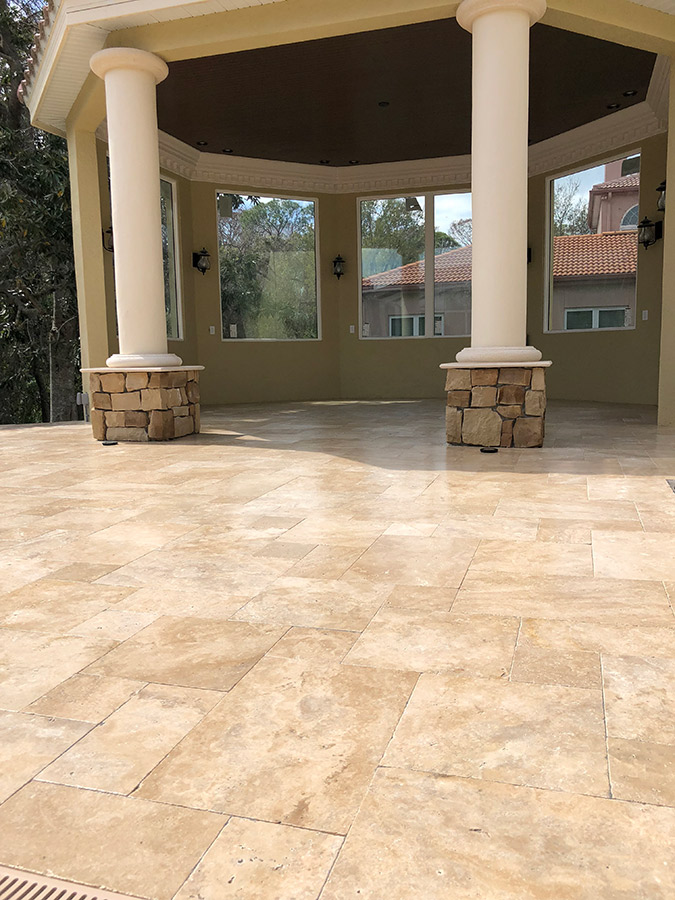Travertine pavers are a timeless choice for patios, driveways, and pool decks thanks to their natural beauty and durability. But when it comes to cleaning them, one common mistake homeowners make is reaching for vinegar — a natural cleaner that’s safe for many surfaces, but not for travertine.
Why Vinegar Damages Travertine
Vinegar is highly acidic, which means it can etch, dull, or even permanently stain travertine. Travertine is a calcium-based stone, and when acid comes into contact with it, it reacts chemically with the surface. This reaction eats away at the finish, leaving dull, cloudy, or discolored spots that can’t be easily wiped off.
Even if you dilute vinegar with water, the acid level is still strong enough to harm the stone. Over time, repeated exposure can cause the surface to lose its natural polish or develop rough, uneven patches.
What Happens When You Use Vinegar on Travertine
Here’s what you might notice if vinegar is used to clean travertine pavers:
-
Etching: The surface becomes dull or chalky in the affected area.
-
Staining: The acid can penetrate the stone and leave light or dark discolorations.
-
Erosion: The protective sealant wears off faster, allowing dirt and water to seep in.
-
Pitting: With long-term damage, small holes or rough textures can appear.
These effects can be permanent unless the surface is professionally refinished or honed.
Safe Alternatives to Vinegar
To keep your travertine looking its best, always use pH-neutral cleaners specifically formulated for natural stone. Look for products labeled “safe for marble or travertine.” You can also make your own gentle cleaning solution using:
-
Warm water
-
A few drops of mild dish soap (without lemon or vinegar additives)
-
A soft mop or microfiber towel
After cleaning, rinse thoroughly with clean water and let the surface dry completely.
How to Prevent Future Stains or Etching
-
Seal your travertine regularly. A high-quality penetrating sealer helps protect against moisture and spills.
-
Avoid acidic products. This includes vinegar, lemon juice, bleach, and ammonia-based cleaners.
-
Blot spills quickly. Don’t let liquids sit — even water can leave marks if left too long.
-
Use mats or rugs. Especially near outdoor kitchens or pool areas where spills are more likely.
Final Thoughts – Does vinegar stain travertine pavers?
Vinegar might be a great eco-friendly cleaner for many surfaces, but when it comes to travertine, it’s a definite no-go. The acid in vinegar will eat away at the stone’s natural finish, leading to costly repairs or refinishing. Stick to gentle, stone-safe cleaners, and your travertine pavers will stay beautiful for years to come.

